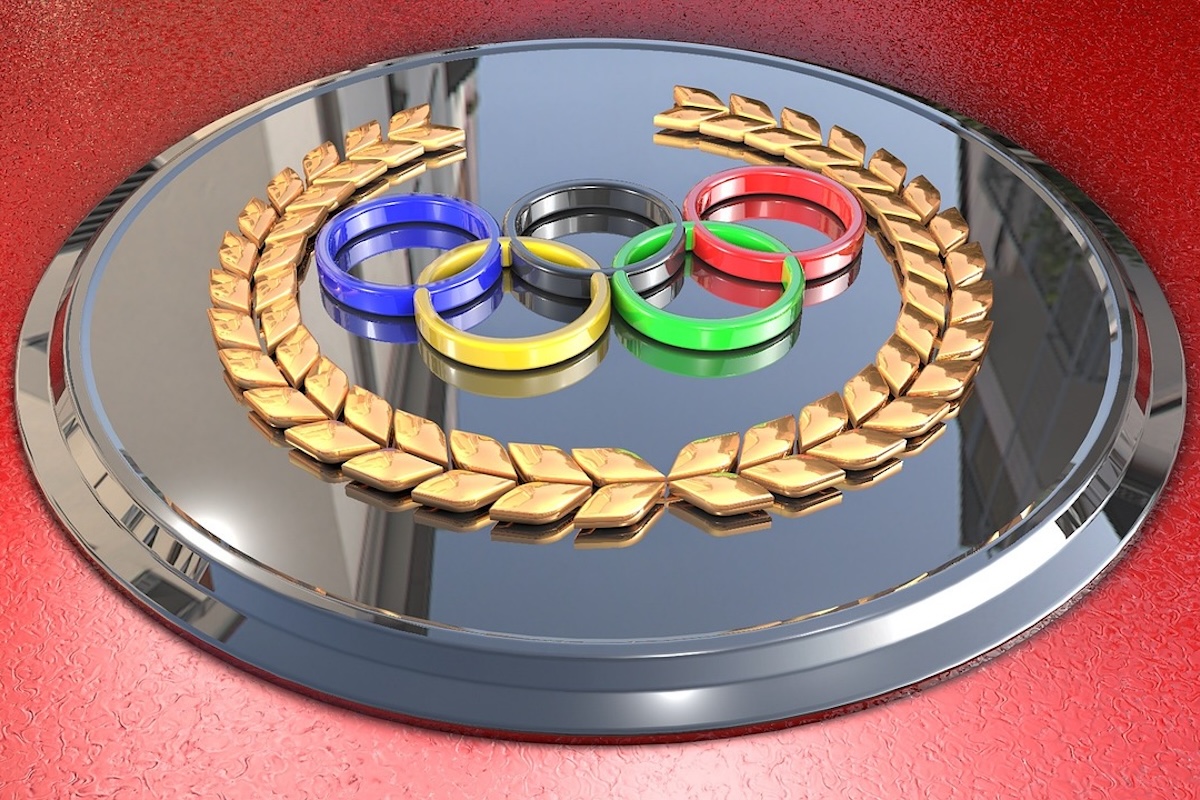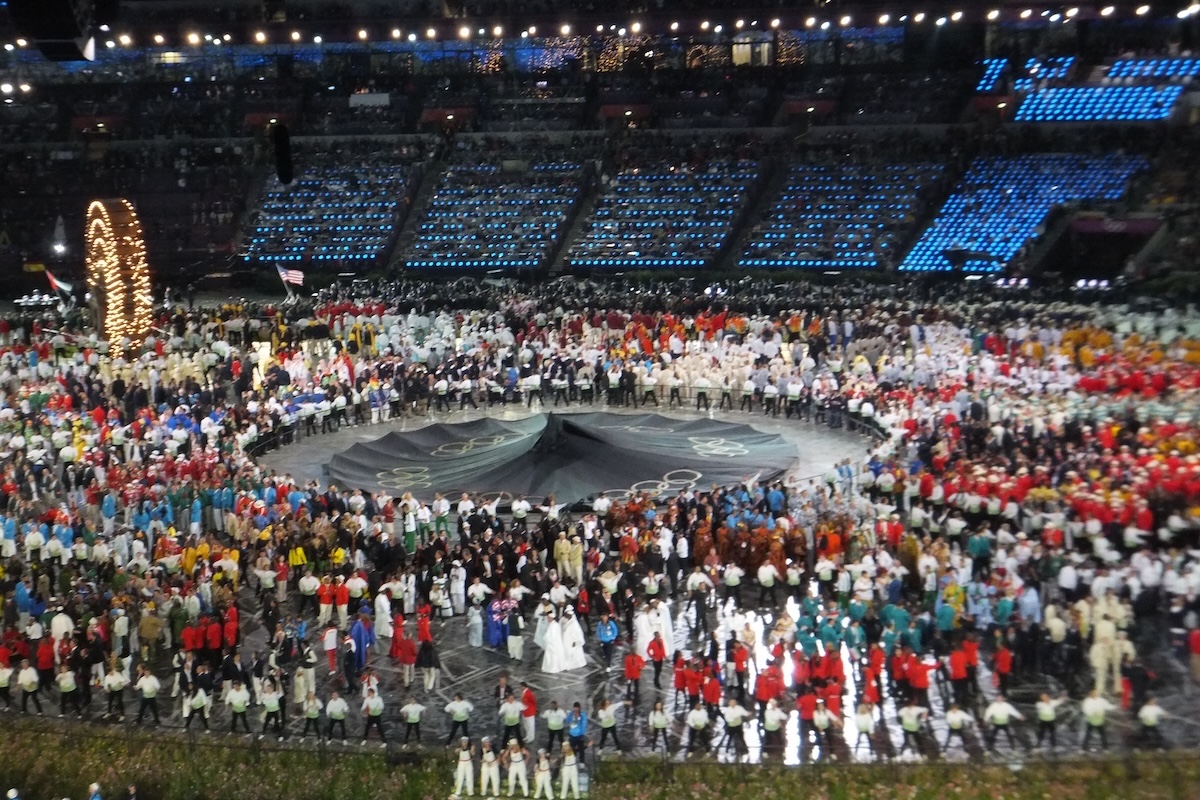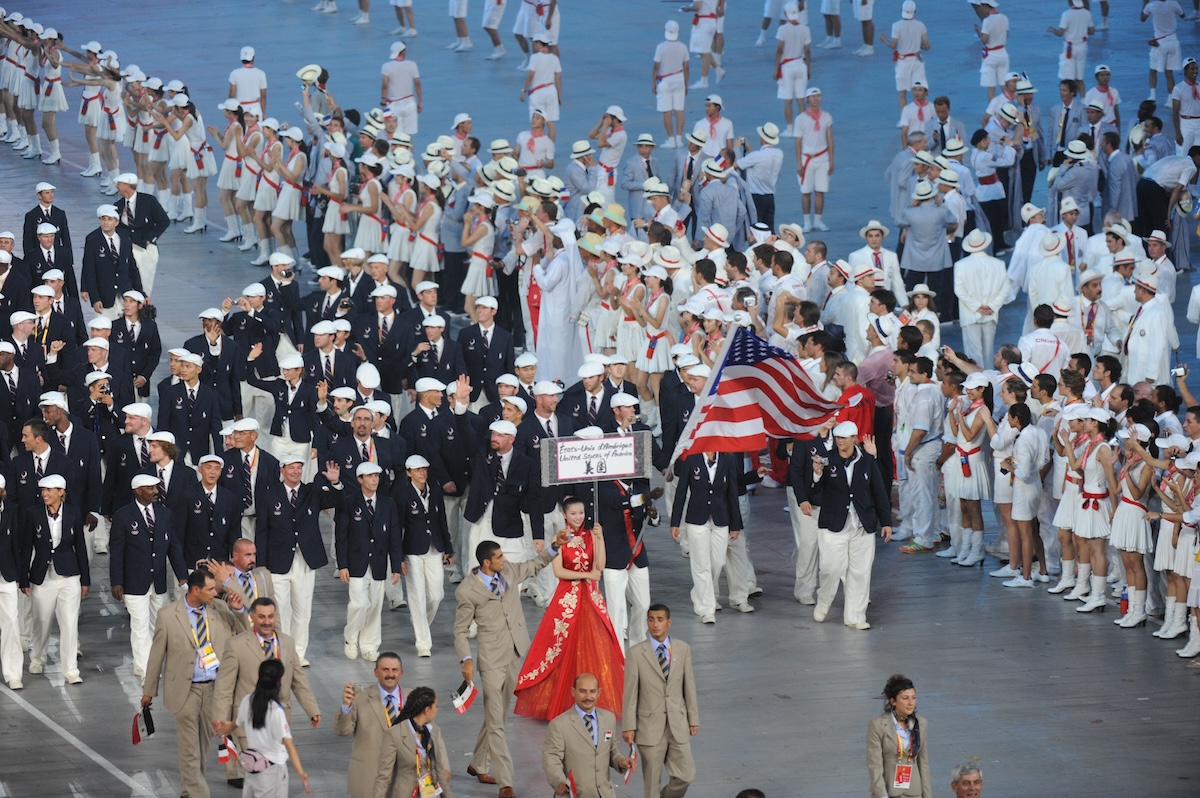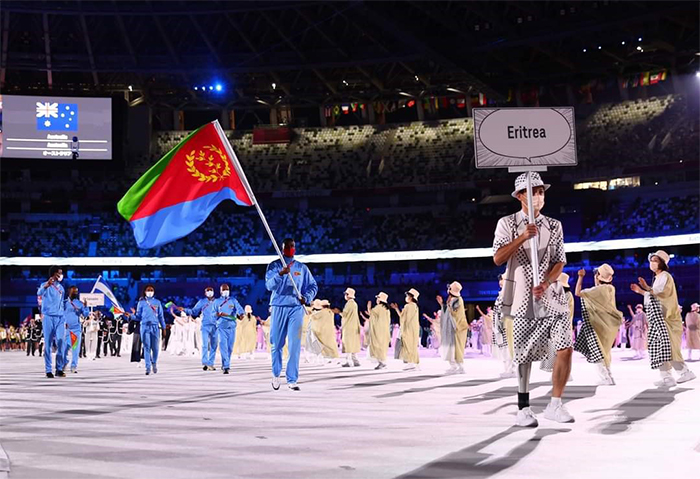
Order of Countries in the Olympics Opening Ceremonies: Parade of Nations Sorting Explained
By: Sarah Stone
Skip to Section
Article Summary
This guide explains how the countries line up during the Olympics Parade of Nations, including why Greece always enters first, what happens when the host country doesn’t use the Latin alphabet, and how stroke count can impact the Parade of Nations order.
The order of appearance during the Olympics Opening Ceremonies isn’t as straightforward as alphabetical-by-English-name. Greece kicks things off, the host country wraps it up, and the rest? Depends on language, politics, and sometimes even stroke count. This article breaks down how countries are organized, how exceptions are handled, and why the whole thing is still based on a system from 1894.
- Greece enters first, followed by the Refugee Olympic Team (since 2020), and then other countries in alphabetical order based on the host nation’s language.
- The final three spots go to the next two host nations and then the current host.
- Sorting languages vary: English, French, Korean, Russian, Japanese phonetics, and even Simplified Chinese stroke order have all been used.
- Exceptions are sometimes made for political reasons, such as joint Korean delegations or disputes over alphabetical order.
- Fun fact: the 2024 Paris Opening Ceremony took place on boats along the Seine, with each nation represented in a floating procession instead of marching into a stadium.
Ever wondered how they organize the countries in the Olympics opening ceremony?
If you watch the Summer and Winter Games, you might know that Greece—as the originator of the Olympics—usually appears first in the Parade of Nations. And the host country, which for 2024 is France, brings up the end.
But in what order does everyone else go?
The answer is…it depends!
About the Olympics Parade of Nations

Parade of Nations in London, 2012 | Photo by Richj1209 on Wikimedia Commons.
One of the most recognizable parts of the Summer and Winter Olympics is the Parade of Nations during the Opening Ceremony. Athletes from all participating nations enter the stadium, country-by-country, with one or two flag bearers from each delegation as well as a sign displaying the country’s name.
The parade happens early in the ceremony, following the entrance of the host country’s head of state as well as the International Olympic Committee (IOC) president, and the playing of the host country’s national anthem.
This parade started in 1924—in Paris—with just 16 delegations present. During the 2020 Summer Games in Tokyo, 206 participated, and during the 2022 Winter Games in Beijing, 91 participated. Individual athletes can choose whether to take part in the parade; often if someone is absent from the ceremony, it’s because they’re competing in an early game.
Following the parade, there’s:
- A symbolic release of doves
- Speeches by the president of the Organizing Committee, and then the IOC president
- The official opening of the Games, usually by royalty, other head of state, or a representative
- Raising of the Olympic flag and playing the Olympic Anthem
- Oath by the athletes, judges, and coaches
- Lighting of the Olympic flame
- The artistic program
In What Order Do Countries Appear in the Olympics Parade of Nations?

USA in the 2008 Summer Olympics Parade of Nations | Photo via Wikimedia Commons.
Since 1928, Greece has generally entered first as the originator of the Olympics. And since 2020, the Refugee Olympic Team has entered second. The host of that year’s Games enters last, with the upcoming two host nations preceding them.
That may sound confusing, so here’s what it looked like for the 2020 Summer Olympics in Tokyo:
1: Greece
2: The Refugee Olympic Team (second in line since 2020 for the Summer Games; they have not yet participated in the Winter Games)
3—203: Everyone else, in alphabetical order, which we will discuss next!
204: USA (hosting the Summer Games in 2028)
205: France (hosting the Summer Games in 2024)
206: Japan (the current host that year)
Now, because the Olympics are an international event, “alphabetical order” can mean different things, especially if the host nation doesn’t use Latin script (for example, South Korea or China).
The first general rule is that the delegations between Greece and the host nation should enter in alphabetical order of the language used by the host nation. So for the 2012 Summer Olympics hosted in London, the first four delegations to enter the stadium were:
- Greece
- Afghanistan
- Albania
- Algeria
…Followed by all other participating countries in English alphabetical order, ending with Zimbabwe, followed of course by Great Britain as the host country.
What Happens if the Host Country Has More Than One Official Language?
It depends on what language they want to use, but it’s not a random, flip-of-the-coin decision.
Canada has hosted the Olympics three times so far—and because both French and English are official languages of that country, it’s not immediately obvious what language should be used when sorting the nations in alphabetical order.
This means that, depending on the language used for the Parade of Nations sorting, the United States of America could be placed either under “U” or under “E”, for États-Unis d’Amérique.
Here’s what they did:
- 1976 Summer Olympics, hosted in Montreal: Used French because it’s the official language of Quebec, meaning that, for example, the USA came in between Spain (Espagne) and Fiji (Fidji) for that year’s Parade of Nations.
- 1988 Summer Olympics, hosted in Calgary: Used English, as that’s the official language of Alberta—in this case for our example, the USA marched between the Soviet Union and the Virgin Islands.
- 2010 Winter Olympics, hosted in Vancouver: Also used English alphabetical order—that’s the most commonly-spoken language in British Columbia—with the United States entering the stadium between Ukraine and Uzbekistan.
What Happens if the Host Country Doesn’t Use the Latin Alphabet?
If a country uses a script other than Latin—like Cyrillic, Chinese (Traditional and Simplified), Japanese (Hiragana, Katakana, and Kanji), and so on—there are other ways to sort the delegations in the Parade of Nations.
Here are a few examples:
- 2014 Winter Olympics, hosted in Sochi: The nations were sorted in Russian alphabetical order. So the USA (Соединенные Штаты Америки or Soyedinennyye Shtaty Ameriki) entered between Slovenia (Словения or Sloveniya) and Tajikistan (Таджикистан or Tadzhikistan).
- 2018 Winter Olympics, hosted in Pyeongchang: The delegations here were sorted alphabetically based on their Korean names. In this case, the USA (미국 or Miguk) entered between Mongolia (몽골 or Monggol) and Bermuda (버뮤다 or Beomyuda).
- 2020 Summer Olympics, hosted in Tokyo: Sorting was based on the Japanese phonetic names of each country. And we can’t use the USA as an example here, because as you might remember from earlier in this article, they were placed towards the end as the 2028 host of the Summer Games! For a different example though, Finland (フィンランド) was placed in between the Philippines (フィリピン) and Bhutan (ブータン) for the Parade.
And it can get more detailed than that.
For the 2022 Winter Olympics, hosted in Beijing, alphabetical sorting wasn’t possible because the Chinese language doesn’t have an alphabet (writing is logographic, based on symbols, and not phonetic or syllabic). During this Parade of Nations, countries were organized based on their names written in Simplified Chinese. The sorting method here was based on stroke order—first you count the number of strokes in the first character, and then the stroke order of that character (horizontal first and vertical strokes second, for example); you repeat the process for the number of characters in a country’s Simplified Chinese name. In this case, Turkey (土耳其) entered after Greece, followed by Malta (马耳他). The USA (美国) was between Bulgaria (保加利亚) and American Samoa (美属萨摩亚).
Are There Exceptions to Alphabetical Order or Official Language in the Parade of Nations?
As mentioned, the two main exceptions more recently are:
- The Refugee Olympic Team has entered after Greece.
- The next Olympic hosts enter towards the end, just before the current host—for example, during the 2020 Summer Olympics, the USA and France entered just before Japan, as they’re the hosts of the 2028 and 2024 Olympics, respectively.
Sometimes there are exceptions due to political sensitivity issues. For instance, during the 1992 Summer Olympics, hosted in Barcelona, Greece entered the stadium first, with Spain being last, as is tradition—however, the other countries were placed in French alphabetical order rather than Catalan or Spanish, even though these were two official languages of that year’s Games. During this time, there were threats of terrorist attacks by the Basque nationalist group ETA, while the nonviolent Catalan independence movement was also aiming to gain publicity and support during the Games. That is a ridiculous oversimplification, so I invite you to read this article as a jumping-off point to learn more about the two.
But Why French?
The two official languages of the Olympics are French and English. When the IOC (and therefore the beginning of the modern Olympic Games) was founded in 1894 by Pierre de Coubertin, French was chosen as the natural language as it was not only his native language, but it also was the language of diplomacy at the time. The IOC is headquartered in Lausanne, Switzerland—and along with German, Italian, and Romanish, French is an official language there.
A bilingual approach helps to reach a broader audience, with official communication, signage, and speeches presented in both languages.
In addition to French and English, incorporating the host country’s language—and going so far as to sort the delegations by the host country’s alphabetical, phonetic, or other language order is a way to respect and highlight their culture and language. It’s one way for that host nation to place their mark on the Games and share a piece of their heritage internationally.
More Interesting Facts About the Olympics Parade of Nations

Eritrea at the 2020 Summer Olympics Parade of Nations | Photo by the Eritrea Ministry of Information on Wikimedia Commons.
Traditionally, athletes from each delegation march behind the flag of their country—however, there have been some exceptions. For example, in 2000, 2004, and 2018, both Koreas marched under a united flag as a symbolic break in tensions.
A Refugee Olympic Team was established in 2016, composed of independent athletes who are refugees. During the Opening Ceremony, they carry the Olympic flag, and thus far, they’ve only competed in the Summer Games. Athletes on this team have come from South Sudan, the DRC, Syria, and other nations in conflict.
Since 2020, the IOC has allowed teams to have both a male and female flag bearer.
When Greece hosted the Olympics in 2004, they elected weightlifter Pyrros Dimas to lead the parade alone, with the rest of the Greek team entering last. This helped to bridge the gap between tradition and…not being able to be in two places at once.
Live birds are no longer released during the Opening Ceremony after an unfortunate incident at the 1988 Summer Games in Seoul, where several of the doves perched on the cauldron, and just refused to fly off when it was lit…resulting in their deaths.
During the 2024 Olympics to be held in Paris, countries won’t actually march into a stadium—instead, they’re going to take boats along the Seine! Along the way, there will be cultural presentations, and each boat will be outfitted with a camera—this will make it much easier for the public to view the parade without needing tickets. The finale of the Opening Ceremony will take place at the Trocadéro.
About the Author
 As the editor-in-chief of Frayed Passport, my goal is to help you build a lifestyle that lets you travel the world whenever you want and however long you want, and not worry about where your next paycheck will come from. I've been to 20+ countries and five continents, lived for years as a full-time digital nomad, and have worked completely remotely since 2015. If you would like to share your story with our community, or partner with Frayed Passport, get in touch with me using the form on our About page.
As the editor-in-chief of Frayed Passport, my goal is to help you build a lifestyle that lets you travel the world whenever you want and however long you want, and not worry about where your next paycheck will come from. I've been to 20+ countries and five continents, lived for years as a full-time digital nomad, and have worked completely remotely since 2015. If you would like to share your story with our community, or partner with Frayed Passport, get in touch with me using the form on our About page.Featured image by Агзам Гайсин from Pixabay
Information published on this website and across our networks can change over time. Stories and recommendations reflect the subjective opinions of our writers. You should consult multiple sources to ensure you have the most current, safe, and correct details for your own research and plans.
Frayed Passport is a participant in the Amazon Associates Program, an affiliate advertising program designed to provide a means for sites to earn advertising fees by advertising and linking to Amazon.com. We also may share links to other affiliates and sponsors in articles across our website.




